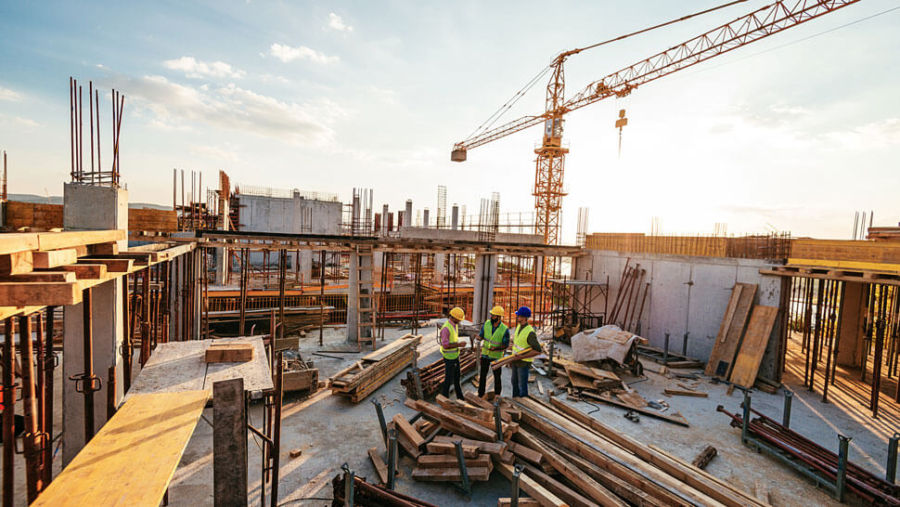

It is likely that some building sites will close, following the Prime Minister’s announcement about avoiding going to work unless it is absolutely necessary.
The guidance is not clear and seems to depend on whether social distancing can be maintained and if the site, oddly, is in the fresh air. Does this mean fit outs, along with domestic builds, have to close, but major city centre building sites remain open?
There is a blurred line here from the Government. Are they requiring the closure of some sites by “exercise of statutory power” or merely issuing “guidance”? What is the impact of the distinction?
In these circumstances, what do the JCT contracts say and what are your options?
There are a number of factors at play here
- contract terms
- suspension
- practical issues
- termination
The contract – what does it say?
Normally, this is the beginning and the end of the advice, but not in the world as it is now.
Under the most common contract of them all, JCT Design and Build Contract, 2016, we all turn to Relevant Events (clause 2.26) and Relevant Matters (clause 4.21). These are the provisions that entitle the contractor to extra time and money for delay, respectively.
Time
If the work on site is required to cease due to a mandatory lockdown, then clause 2.26.12 is triggered. This would give the contractor extra time and relief from LADs but not extra money.
Clause 2.26.12 requires both the exercise of a statutory power and one that directly affects the execution of the works. Government guidance or recommendations alone are unlikely to suffice.
In those circumstances, the parties would need to consider if the concept of ‘force majeure’ applies under clause 2.26.14. There is no settled definition under English law, the standard unamended JCT contracts do not define it, and there is no case law on this reference to force majeure in the JCT suite.
Force majeure is generally accepted as exceptional circumstances that are not within a contracting party’s control and were not reasonably anticipated and therefore it probably would cover epidemics. On that basis, it is difficult to see how the Covid-19 outbreak, if it directly affects the carrying out of the works on your site, would not constitute a force majeure event unless the contract was entered into recently.
Money
In the unamended JCT, clause 4.21 doesn’t cover force majeure events or statutory powers. This means that the contractor pretty much takes the entire risk of loss and expense due to the impact of COVID-19, with the limited exception of any delays in getting Development Control permissions such as building regulation approval or the discharge of planning conditions and the like caused by the outbreak.
Suspension
What happens if the works have to be suspended? Clause 8.11.1 is a mutual right of termination where the works or substantially the whole of the works are suspended for a continuous period of two months as a result of force majeure or the exercise of a statutory power, among others.
Given the present state of affairs, this seems a distinct risk, although note the requirement for the period to be continuous: it is possible that delays could be ‘stop/start’ as restrictions are imposed, lifted and re-imposed.
Normally, you would expect the parties to keep an open channel of dialogue. Let’s hope that two months is all we need.
Practical issues
Until the contract is terminated, the normal site possession, responsibilities and insurance obligations remain unchanged. This could be a big burden for contractors if they have multiple sites and a resourcing issue e.g. for site security. Check with your brokers about the insurance position.
Termination?
If one of the parties has decided that they are better off by terminating under 8.11, then the various provisions kick in:
- The contractor has to remove all temporary buildings, plant, tools and equipment belonging to them with all reasonable dispatch – the corollary to this is that the contractor should be keeping them on site until then.
- The contractor has to supply all as-builts, H&S file information and related information as stated in the contract documents and, as the employer, may reasonably require to show and describe the works.
- There is a reckoning of sums due under clause 8.12.3 which does entitle the contractor to the costs of removal of their equipment etc from site, and any loss and/or damage caused to the contractor due to the termination (but generally not loss of profit on the remainder of the works).
- Title in any goods and materials left on site included in the reckoning should pass to the employer.
Commentators and government spokespeople seem to be urging tolerance and understanding. The emphasis seems that Covid-19 should not yet lead to termination.
You need to think about the conversations you should be having on your projects and sites:
- Do you want the qualifying suspension period to be extended to avoid the risk of termination?
- Do you feel that you should start down the route of issuing delay notices?
- What health and safety measures does this site need and who is best placed to bear the cost?
We suspect there is much more to come on this topic, including our article to follow soon on site management and HSE issues.










